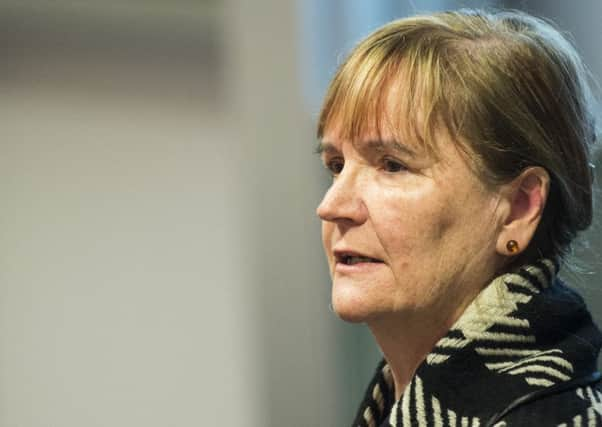Professor Marian Scott: Teaming up with China in the appliance of science can only benefit Scotland


Our universities and business communities already have substantial relationships with China, and there are many excellent examples of collaboration. However, much still needs to be done through more regular dialogue and more could be invested to enable longer-term collaborations to flourish.
As innovation is a key priority for both China and Scotland, there are undoubtedly many new opportunities upon which Scotland could capitalise. I have just returned from a short but productive trip to China. During the visit, led by Royal Society of Edinburgh (RSE) president Professor Dame Jocelyn Bell Burnell, we met presidents and other influential individuals from leading national academies and related bodies in China and visited several research institutes.
Advertisement
Hide AdAdvertisement
Hide AdThe focus of the visit was on how the RSE could build on existing agreements and enhance research and innovation collaborations between the two countries, forging stronger cross-sector relationships and partnerships at a high level.
Those we met included Professor Yang Wei, president of the National Natural Science Foundation of China; Professor Bai Chunli, president of the Chinese Academy of Sciences and of The World Academy of Sciences; Professor Wang Weiguang, president of the Chinese Academy of Social Sciences; and Mr Cheng Jiayi, deputy director-general of international co-operation, Chinese Academy of Engineering.
They all play key roles in the advancement of knowledge, working to support sustainable prosperity through research, education, policy and diplomacy. From our conversations with them and others, it is apparent that the Chinese see many areas where collaboration and partnerships would be beneficial, for example in space science, big data, renewable energy, robotics, sustainable cities, cultural heritage, plant genetics and food security and medical science.
I am hugely optimistic. There have been remarkable scientific developments in China. One such has been the Five hundred-metre Aperture Spherical Telescope (FAST), the largest radio telescope ever built. The FAST telescope is so large that the team hopes it will pick up radio waves from the far reaches of the cosmos. It will also be hunting for new stars – in particular pulsars – as well as joining the hunt for extraterrestrial life.
The existing high-level agreements between the RSE and the Chinese Academies are a sign of the strength of the partnership Scotland and China already have and a signpost to how those relationships could be strengthened in the future.
Amongst various RSE–China activities in the next six months, the RSE will soon take a delegation of experts from the field of synthetic biology to China and lead a high-level delegation involving Scottish Innovation Centres in spring next year. This will be the third high-level forum organised through the RSE.
During our time in China, we were fortunate to have the opportunity to discuss the way forward with the UK’s Minister and Deputy Head of Mission, Martyn Roper and other British Embassy and Scottish Affairs colleagues.
They all strongly supported our proposed developments and future plans for increased UK–China collaborations. The RSE is clear on the impact of these collaborations so far and the opportunities we believe they present for the future.
Advertisement
Hide AdAdvertisement
Hide AdThe RSE makes a distinctive impact internationally and our vibrant multidisciplinary National Academy also brings many benefits to Scotland.We welcome new opportunities to further raise Scotland’s research and innovation profile and to strengthen its connections with China.
With the support of the UK and Scottish Governments, we hope to foster a new golden era for Scotland–China relations. Discover more at www.rse.org.uk.
Professor Marian Scott, OBE, FRSE is Vice-President (International) of the Royal Society of Edinburgh.